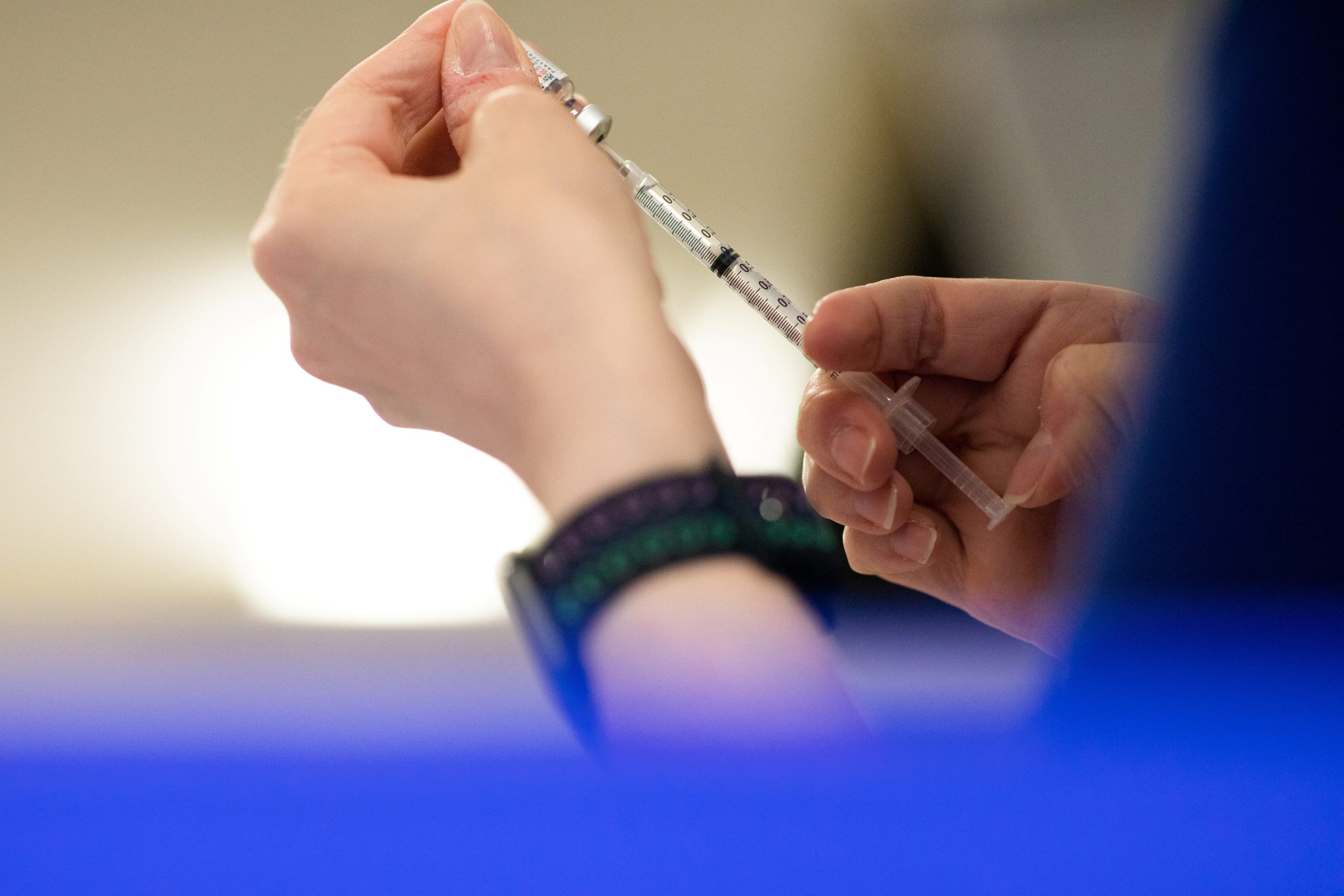
Lauren Dempsey, MS in Biomedicine and Law, RN, FISM News
[elfsight_social_share_buttons id=”1″]
A new study has found that mice that received two or more COVID-19 booster shots had severely weakened immune systems.
The study was conducted by Chinese researchers at China’s Chongqing Medical University with the goal of understanding the long-term impact of frequent vaccination.
While vaccination continues to be the Centers for Disease Control and Prevention’s (CDC) leading recommendation for preventing infection as well as severe illness, this new study found that when mice were given extended immunizations, it had a significant negative impact on the immune system.
Data from the research indicates that the additional booster shots affected the recombinant receptor binding domain (RBD), which is the part of the spike protein that attaches to receptors on the outside of cells, allowing the virus to infect cells.
The mice used in this study were injected with several doses of purified spike protein receptor binding domain. Researchers found that multiple booster shots “significantly decreased RBD-specific antibody titers and serum neutralizing efficacy against the Delta and Omicron variants, and profoundly impaired CD4 and CD8T cells.”
These T cells are essential in triggering an immune response as well as attacking and neutralizing pathogens. The mice initially had a strong immune response after being injected with spike proteins. However, after receiving the fifth and sixth doses the researchers observed a weakened response from B and T cells as well as antibodies.
In the study, the researchers confirmed that multiple booster shots “overturned the protective immune memories” and suggested that these findings “demonstrate potential risks with the continuous use of SARS-CoV-2 vaccine boosters, providing immediate implications for the global COVID-19 vaccination enhancement strategies.”
While these study results have not been confirmed in human research, the results do correlate to research finding that COVID-19 boosters do not offer significant protection against variants and confirm that these vaccines are associated with risks.
POOR EFFICACY, DURABILITY, AND SAFETY
Growing evidence shows that vaccine efficacy and durability are poor and may contribute to an increased risk of COVID-19 infection. A study from researchers at the Cleveland Clinic found that the Pfizer-BioNTech and Moderna vaccines were just 30% effective.
During the course of the 13-week study, about 5% of employees contracted COVID-19 and researchers found that “the higher the number of vaccines previously received, the higher the risk of contracting COVID-19.”
LOWERS IMMUNITY IN HUMANS, TOO
Similarly, a study published in the Lancet in April 2022 that analyzed the efficacy of COVID-19 vaccines and waning immunity found that 8 months post-vaccination immune function was lower in those that were fully vaccinated when compared to individuals that were unvaccinated.
This study also found that individuals with comorbidities who received the Pfizer-BioNTech or AstraZeneca vaccines had lower vaccine effectiveness than individuals without comorbidities, suggesting that vaccination could put immunocompromised patients at risk for infection.
The current guidance by the CDC recommends that all eligible individuals aged 6 months and older receive a primary series followed by boosters.
Contrastingly, the European Medicines Agency (EMA) and the European Center for Disease Prevention and Control (ECDC) recommend booster shots for those that are high risk, finding “there is no clear evidence to support giving a second booster dose to people below 60 years of age who are not at higher risk of severe disease.”
However, a response from the National Institutes of Health (NIH) to the Lancet study acknowledges the possibility of “vaccine sequelae” and an “increase in cardiovascular diseases, especially acute coronary syndromes, caused by the spike proteins in genetic vaccine” as well as organ damage. The responding author suggests that “as a safety measure, further booster vaccinations should be discontinued.”
